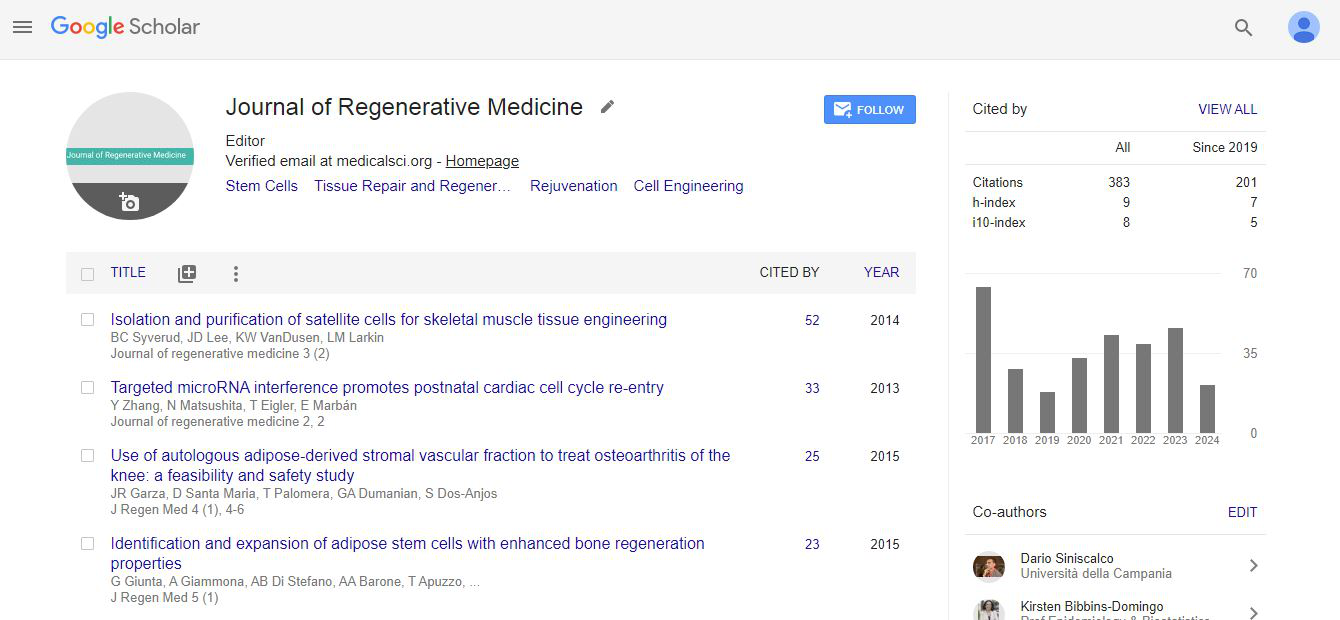3D printing: An anticipatory ethical analysis of future developments
Richard L Wilson
Towson University, USA
: J Regen Med
Abstract
3D printing (or “additive manufacturing”) has already begun to change the nature of how businesses produce artefacts. From the perspective of business, 3D printing replaces earlier methods of manufacturing so that rather than cutting material away in order to make products, it produces artefacts by adding material in layers. This method of manufacturing creates alterations at a number of levels when compared with traditional manufacturing. It greatly reduces the amount of waste created by traditional manufacturing. It allows precise control over the material composition of products. It exerts an influence upon the design of products that allows for rapid designing, rapid prototyping, and rapid re-designing. It allows for the production of items where no assembly is required while also allowing compact, portable manufacturing. While 3D printing has the potential for altering the nature of business practices, it has already begun to shift the traditional models of production for both businesses and individuals. There are alterations related to the product design process and as well as economies of scale. 3D printing allows the development of a business model that combines aspects of mass production and artisan individual production. Anticipatory ethics provides a basis for addressing a variety of important questions about 3D printing and the alterations in business it stands to create. In addition to describing how 3D printing will create alterations in business, this analysis will also attempt to show how 3D printing will help to develop a sustainable future, allow for resource efficiency, increase recycling, increase local digital manufacturing, produce new methods for repair, and influence developments in synthetic biology and nanotechnology. This discussion will provide a foundation for attempting to anticipate ethical issues that may arise for businesses and society at large as a result of future developments in 3D printing.
Biography
Email: wilson@towson.edu
 Spanish
Spanish  Chinese
Chinese  Russian
Russian  German
German  French
French  Japanese
Japanese  Portuguese
Portuguese  Hindi
Hindi 